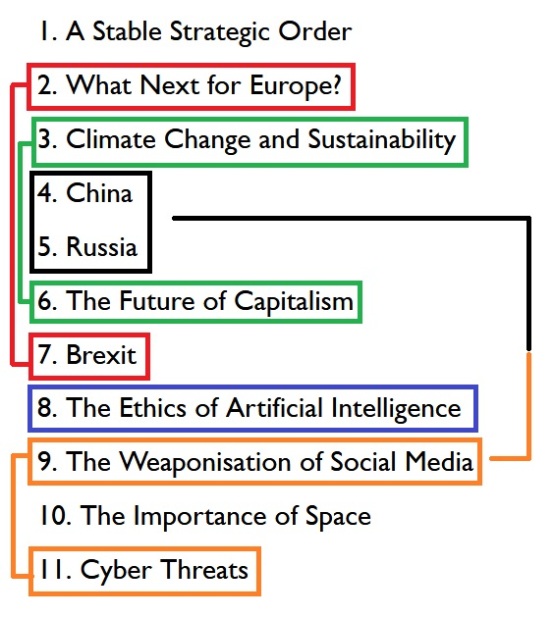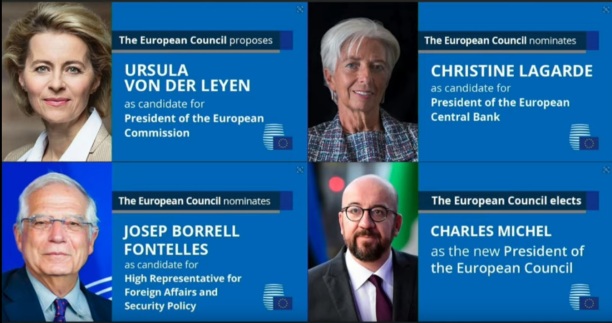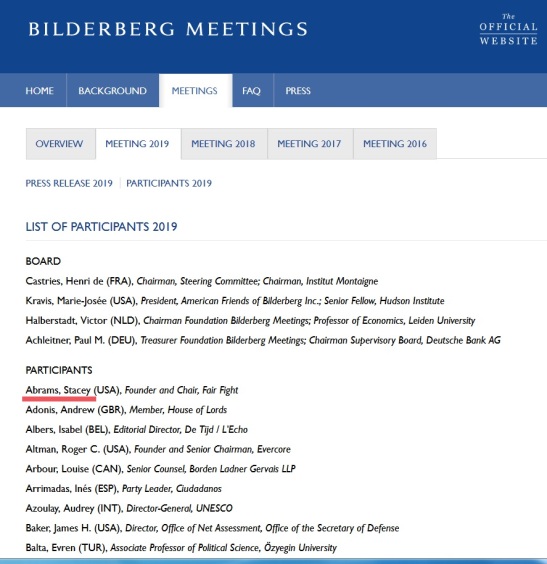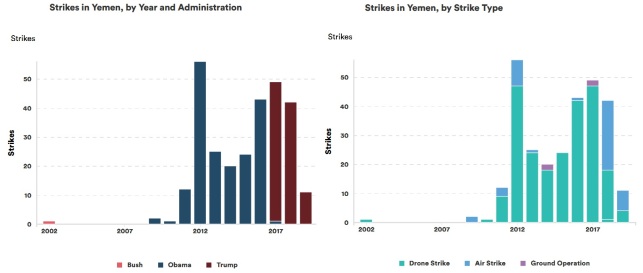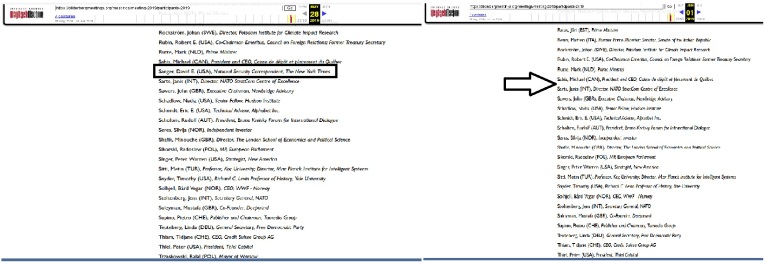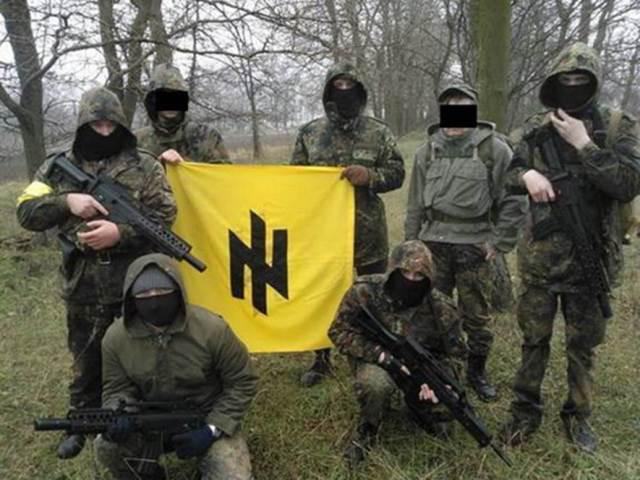There’s a chap called Tobias Ellwood who’s spent the past week doggedly promoting his latest idea to save Western civilization. “From a military perspective,” Ellwood explained during a recent speaking engagement, it’s never been more urgent to impose a “humanitarian sea corridor” off the coast of Ukraine. This would involve an outright naval intervention by NATO in the Black Sea — with the objective being to prevent Russia from seizing control of the strategically important city of Odesa. Perhaps upon commencement of this mission, Ellwood suggested, listless denizens of “The West” will finally come to appreciate the existential stakes of the conflict now before us, and “accept that we are actually in a 1938 period, but actually worse.” The double “actually” was presumably included for maximum emphasis.
Notably, Ellwood is not some random crank. He is “actually” a Member of Parliament in the United Kingdom, and the chairman of the impressively-titled Defence Select Committee. In that latter capacity, he seeks to exert influence over the Defence policy of Her Majesty’s Government, which is currently led by his Conservative Party colleague Boris Johnson.
This is the opening paragraph of an alarming report by American independent journalist Michael Tracey who managed to receive an invite to a private event recently hosted by the Royal United Services Institute (RUSI), which describes itself as “the world’s oldest and the UK’s leading defence and security think tank”. The same piece continues:
During the private event, hosted by a Think Tank which unilaterally and hilariously decreed his comments “off the record,” Ellwood described the plan he envisaged for how this new phase of military intervention in Ukraine would unfold. It should be up to the UK to “create a coalition of the willing,” he declared — borrowing the terminology once used for countries that participated in the US invasion of Iraq, which memorably included the UK. Ellwood evidently detected no ignominy at all in this historical association.
On the subject of Ukraine, Ellwood’s view is that the UK and Europe must stop waiting around for the US to get its act together, and instead proactively initiate the kind of muscular, unapologetic military action that is currently needed against Russia. The lesson of last year’s Afghanistan withdrawal, Ellwood charged — as well as Joe Biden’s purported Ukraine-related dithering — has been to “expose America to be very, very hesitant indeed.” He explained: “I see the United States almost catching up with where, from a military perspective, a vanguard may actually go.”
Note that Ellwood’s plan certainly does not assume that the US would somehow just sit out whatever forthcoming war the UK may instigate. With the US as the real firepower behind NATO, that’s obviously not feasible. Instead, his idea would simply be for the UK to place itself at the “vanguard” of precipitating the new military action, after which the US would inevitably be engulfed as well. Time is of the essence, Ellwood contends, because China has ominously joined with Russia to set about “dismantling the liberal world order” — a development Ellwood believes will elevate the conflict to a magnitude on par with the Peloponnesian War of Greek antiquity. “China will exploit the war in Ukraine to hasten America’s inevitable decline,” he warned.
Out of these ashes, at least according to Ellwood’s apparent calculus, will rise the UK: “If we want Putin to fail,” Ellwood declared, “then we need to conclude this in months. We need to vow to press forward.” He added, “I underline how critical it is: if Odesa falls, then I’m afraid it’s going to be very, very difficult for us to turn this around.” (Note his use of the pronoun “us,” as though it should be understood that the UK is already an official combatant.)
Click here to read Michael Tracey’s full report entitled “The UK is Trying to Drag the US into World War III” published on April 14th on substack.
*
Michael Tracey is certainly not alone in raising concerns over the looming threat of what was until now considered absolutely unthinkable – the prospect of World War III and nuclear annihilation. Noam Chomsky recently gave two interviews and in the first he also addresses the matter head-on:
Right at this moment, you hear heroic statements by people in Congress or foreign policy specialists saying we should set up a no-fly zone, for example, to defend Ukraine. Fortunately, there’s one peacekeeping force in the government. It’s called the Pentagon. They are so far vetoing the heroic statements by congressmen showing off for their constituents about how brave they are, pointing out that a no-fly zone not only means shooting down Russian planes, but it means attacking Russian anti-aircraft installations inside Russia. Then what happens? Well, actually, the latest polls show about 35 percent of Americans are listening to the heroic speeches from Congress and advisors. Thirty-five percent say they think we should enter into the war in Ukraine, even if it threatens to lead to a nuclear war. The end of everything. The country that launches the first strike will be destroyed.
Continuing:
I don’t know if you saw it. But a couple of days ago, there was a very important interview by one of the most astute and respected figures in current U.S. diplomatic circles, Ambassador Chas Freeman. A very important interview [which is also embedded below]. He pointed out that the current U.S. policy, which he bitterly criticized, is to “fight Russia to the last Ukrainian,” and he gave us an example: President Biden’s heroic statement about the war criminal Putin—[Biden’]s counterpart as a war criminal. And Freeman pointed out the obvious: the U.S. is setting things up so as to destroy Ukraine and to lead to a terminal war.
In this world, there are two options with regard to Ukraine. As we know, one option is a negotiated settlement, which will offer Putin an escape, an ugly settlement. Is it within reach? We don’t know; you can only find out by trying and we’re refusing to try. But that’s one option. The other option is to make it explicit and clear to Putin and the small circle of men around him that you have no escape, you’re going to go to a war crimes trial no matter what you do. Boris Johnson just reiterated this: sanctions will go on no matter what you do. What does that mean? It means go ahead and obliterate Ukraine and go on to lay the basis for a terminal war.
Those are the two options: and we’re picking the second and praising ourselves for heroism and doing it: fighting Russia to the last Ukrainian.
Click here to read the full article entitled “Noam Chomsky on How To Prevent World War III” published by Current Affairs magazine on April 13th based on an interview with editor-in-chief Nathan J. Robinson.
Here is ‘The Grayzone’ interview with retired senior diplomat Chas Freeman released on March 22nd that Noam Chomsky references above:
*
The following day, Chomsky was interviewed by The Intercept’s Jeremy Scahill who asked whether there is any aspect of the response by the US, Nato or the European Union that he believes is appropriate. Chomsky replied:
I think that support for Ukraine’s effort to defend itself is legitimate. If it is, of course, it has to be carefully scaled, so that it actually improves their situation and doesn’t escalate the conflict, to lead to destruction of Ukraine and possibly beyond sanctions against the aggressor, or appropriate just as sanctions against Washington would have been appropriate when it invaded Iraq, or Afghanistan, or many other cases. Of course, that’s unthinkable given U.S. power and, in fact, the first few times it has been done — the one time it has been done — the U.S. simply shrugged its shoulders and escalated the conflict. That was in Nicaragua when the U.S. was brought to the World Court, condemned for unlawful use of force or to pay reparations, responded by escalating the conflict. So it’s unthinkable in the case of the U.S., but it would be appropriate.
However, I still think it’s not quite the right question. The right question is: What is the best thing to do to save Ukraine from a grim fate, from further destruction? And that’s to move towards a negotiated settlement.
There are some simple facts that aren’t really controversial. There are two ways for a war to end: One way is for one side or the other to be basically destroyed. And the Russians are not going to be destroyed. So that means one way is for Ukraine to be destroyed.
The other way is some negotiated settlement. If there’s a third way, no one’s ever figured it out. So what we should be doing is devoting all the things you mentioned, if properly shaped, but primarily moving towards a possible negotiated settlement that will save Ukrainians from further disaster. That should be the prime focus.
Chomsky continued:
We can’t look into the minds of Vladimir Putin and the small clique around him; we can speculate, but can’t do much about it. We can, however, look at the United States and we can see that our explicit policy — explicit — is rejection of any form of negotiations. The explicit policy goes way back, but it was given a definitive form in September 2021 in the September 1st joint policy statement that was then reiterated and expanded in the November 10th charter of agreement.
And if you look at what it says, it basically says no negotiations. What it says is it calls for Ukraine to move towards what they called an enhanced program for entering NATO, which kills negotiations; — this is before the invasion notice — an increase in the dispatch of advanced weapons to Ukraine, more military training, the joint military exercises, [and] weapons placed on the border. We can’t be sure, but it’s possible that these strong statements may have been a factor in leading Putin and his circle to move from warning to direct invasion. We don’t know. But as long as that policy is guiding the United States, it’s basically saying, to quote Ambassador Chas Freeman, — it’s saying: Let’s fight to the last Ukrainian. [That’s] basically, what it amounts to.
So the questions you raised are important, interesting, just what is the appropriate kind of military aid to give Ukrainians defending themselves enough to defend themselves, but not to lead to an escalation that will just simply lead to massive destruction? And what kinds of sanctions or other actions could be effective in deterring the aggressors? Those are all important, but they pale into insignificance in comparison with the primary need to move towards a negotiated settlement, which is the only alternative to destruction of Ukraine, which of course, Russia is capable of carrying out.
Click here to watch the same interview and read the full transcript at The Intercept website.
*
On Good Friday (April 15th) as the Russian invasion of Ukraine entered Day 50, Democracy Now! spoke with Vijay Prashad, author and director of the Tricontinental: Institute for Social Research and co-author with Chomsky of a forthcoming book The Withdrawal: Iraq, Libya, Afghanistan, and the Fragility of U.S. Power. Here is one excerpt from that interview, which is also embedded below:
Of course I criticize Putin for invading Ukraine, Amy. That goes without saying, because he has violated the U.N. Charter. It is a brutal war, as I said when I first started speaking. But I think that’s hardly the question, whether I condemn Mr. Putin or not. The issue is that we’re living in a world where, for a lot of people, it looks like it’s an upside-down world.
It’s not just the question of the treaties you mentioned. The United States government has not signed the international laws of the seas, and yet it prosecutes so-called freedom of navigation missions against not only China in the South China Sea, using this U.N. Charter, which it’s not a signatory of, but it has been provoking clashes with Russia in the Black Sea, in the Baltic Sea and in the Arctic Sea, again, using these so-called freedom of navigation missions.
Let’s take the question of the International Criminal Court. When special prosecutor Fatou Bensouda opened a file to investigate war crimes in Afghanistan — and, by the way, she was really clear: She said war crimes conducted by everybody — by the Taliban, by the Afghan National Army, by the United States, by other NATO countries, and so on. When she did that, the United States government threatened her, told her that neither she nor her family would ever get a visa to come to the United States, and so on. The U.S. put enormous pressure on the International Criminal Court to shut down that investigation. That’s incredible. This is an investigation of war crimes which are detailed in the U.S. government’s own documents, which have been released by the WikiLeaks foundation, whose founder, Julian Assange, is sitting in Belmarsh prison, is being treated as a criminal, whereas the war criminals in Afghanistan are going free and threatening, with Mafia-like tactics, the special prosecutor at the ICC.
Meanwhile, again, in an afternoon — to quote the Indian high official, in an afternoon, the United States is able to get these bodies, established by international law, which the United States is not a signatory to — the U.S., in an afternoon, is able to get them to open a file and start talking about war crimes. Over a million people killed in Iraq, and no investigation of war crimes. None. Over a million people. Half a million children killed in Iraq during the 1990s sanctions regime, not even the word “genocide.” The West is walking all over the word “genocide,” is reducing the power of an important category of an important convention, the 1951 Convention Against Genocide. This extraordinary, casual weaponization of human rights and the word “genocide” by the West is going to be something that we are going to face in the times ahead, when other countries are going to say, “Well, we can do anything if we are backed by Washington, D.C.” This is extraordinarily perilous.
And I hope people open their eyes to the very cynical way in which Washington, D.C., is approaching this terrible war taking place in Ukraine, a war that has to end with a ceasefire and negotiations. And you’re not going to easily get a ceasefire and negotiations if you’re going to loosely, as Mr. Biden did in Poland at Warsaw castle, loosely call for regime change in Russia. That is not going to help you bring people to the table, whether it’s in Belarus or it’s in Antalya, Turkey. It’s not going to bring Ukraine and Russia to the table. It’s not going to stop Russia’s war. If the Russians think that the United States has a total agenda to annihilate the Russian government, I’m afraid they are not going to get a ceasefire. You’re going to just get more atrocities in Ukraine. And that’s something that the people of the world should not stand for.
Click here to watch the same interview and to read the full transcript at the Democracy Now! website.
*
Returning to Michael Tracey’s excellent piece, I find it truly astonishing how many of the formerly anti-war liberals and anti-war left are now cheerleading for Nato intervention in Ukraine and apparently unaware of the incredible threat posed by an escalating conflict between the world’s two largest nuclear powers. At a recent rally in London a representative of Unison, one of the UK’s largest trade unions, read aloud a message she’d received from the head of the Federation of Trade Unions in Ukraine which included a demand to “secure our Ukrainian sky.”
Similar calls for ‘No Fly Zone’s have been a common feature of liberal demands for “humanitarian interventions” and were used to legitimise Nato’s attack on Libya. In this instance, Nato intervention means nothing less than World War III, and yet elements within the trade union movement, across the ‘liberal media’ and the realigned Labour Party under Keir Starmer seem totally oblivious to these incalculable dangers.
Tracey writes:
Addressing a pro-war rally in London last weekend was Alex Sobel, a Labour Party MP who serves in the Shadow Cabinet of Keir Starmer, the current Opposition Leader. When I asked Sobel to clarify his policy grievance against Boris Johnson, he told me: “There’s been a lack of military assistance. And there’s been a lack of support within NATO more broadly, in terms of military assistance.” This can be translated as: Boris Johnson, NATO, and the US have not been militarily aggressive enough in Ukraine! That’s the criticism!
Expressing his reluctance to countenance any kind of negotiated resolution to the war, Sobel told me: “The Russians only understand force, they do not understand peace.” This is a weirdly common allusion to a supposed genetic predisposition of Russians that makes them inherently… warlike? Sounds very similar to when James Clapper, the top Intelligence Official in the Obama Administration, would go around intoning that Russians were “almost genetically-driven to co-opt” and “penetrate.”
Much of the UK media shares the view that Boris Johnson has exhibited insufficient “force” in his dealings with Russia. This includes The Observer newspaper — understood to be the UK’s leading bastion of respectable left/liberal opinion — which threw caution to the wind last weekend and published an official unsigned editorial institutionally endorsing “direct intervention” in Ukraine by NATO. In particular, the editorial promoted the very same naval blockade plan touted by Tobias Ellwood — the aforementioned Conservative MP who might otherwise be considered the newspaper’s ideological foe. “Declare the unoccupied city of Odesa off-limits,” the Observer editorial demands of Johnson, “and warn Russia to cease coastal bombardments or face serious, unspecified consequences.” Wariness to start World War III has now turned into a timid “excuse” for inaction, the editorial writers allege.
Continuing:
[B]ehold the recent activism of Owen Jones, the noted left-wing journalist whose “beat” appears to be a never-ending series of exhortatory instructions to some amorphous assemblage he calls “The Left.” Jones is now of the view, amazingly, that supporting the “armed struggle” of Ukraine is the only proper “anti-war” position. So here we have another “anti-war” leftist who happens to be in favor of provisioning tanks, fighter jets, missiles, and grenades into an active warzone, for the purpose of facilitating warfare. As is also the case in the US, these UK left/liberals often find it unpleasant to straightforwardly label themselves “pro-war” — so they have been forced to play word-games galore to avoid acknowledging reality. And the reality is that the policy action they’re advocating must necessarily be enacted by some combination of Boris Johnson, the US military-industrial complex, and NATO — all of whom have now been enlisted to carry out these leftists’ desired war aims.
The most vivid manifestation of this increasingly incoherent left-wing viewpoint could be observed a few days ago at the pro-war march and rally in Whitehall, the governmental corridor of Central London. I found out about the rally because it was endorsed and promoted by Owen Jones on Twitter. Upon arrival, I discovered that leading the march was another left-wing journalist, Paul Mason, who organized the action in concert with a strange Trotyskist faction called the Alliance for Workers’ Liberty. “We support Ukraine’s war and demand the West provides weapons,” the group’s pamphlet declares, along with a bitter condemnation of NATO for “steadfastly refusing to fight.”
Mason had many magical moments as rally leader, but his most comical interlude was when he stopped along the march route to bellow, via bullhorn, in the general direction of the UK Ministry of Defence — shouting for the workers inside to come out and join. I asked Mason if he reckoned this was the first “anti-war” and/or “left-wing” rally in British history for which the Ministry of Defence (of a Conservative government!) was considered a natural ally — but he caustically refused to talk, instead denouncing me as a “Putin shill.” (Direct quote.) Clever guy, that Paul. Supremely confident in his convictions, surely, and quick with the novel insult.
A former employee of the BBC and Channel 4, Mason offered up an inventive rationalization for his pro-war advocacy when it was his turn to clasp the microphone that afternoon. “In a war like this, our natural demand for peace — our natural fear of military action — has to take second place,” he proclaimed. Because don’t you know, according to Mason, this particular war is actually being waged on behalf of the vaunted “Working Class”!
“It is in the interest of working class people to support Ukraine in this war,” Mason beseeched from the rally pulpit, expressing his hope to mobilize the whole of the British Labour Movement behind the pro-war cause. “I know how hard that is for many of us, who’ve stood outside here in so many other wars and said — you know, screw your hypocrisy over Iraq, and Afghanistan, and the rest,” Mason acknowledged. “It’s hard. But the only way to get arms into the hands of the Ukrainian people right now… is to keep the pressure on the government.”
So there you have it, clear as day: the object of this left-wing “anti-war” rally was to “keep the pressure” on the ruling Conservative Government… to continue ramping up weapons shipments to Ukraine. For use in… intensifying warfare. As Mason barreled forward with his speech, the Ukraine flag shimmered triumphantly in the sunlight atop Boris Johnson’s Cabinet Office, located right across the street at 70 Whitehall — a moving symbol of cross-ideological unity.
I found that a very simple line of questioning posed to the assembled leftist demonstrators — merely asking them whether they viewed the event they were partaking in as a “pro-war” rally, or an “anti-war” rally — tended to elicit spells of bewildered anger. When asked this question, a number of the pamphleteers insisted to me that the rally was in fact “anti-war” in nature, even though they were distributing placards featuring the injunction to “Arm Ukraine” — a task which would necessarily have accomplished by the US, UK, and other governments, in conjunction with NATO. One of the chants fervently screamed on the march went as follows: “Put an end to Putin’s reign! Arm, arm, arm, Ukraine!” That’s the new mantra of the British anti-war movement! If nothing else, one has to appreciate this audacious innovation in the fluidity of language.
Click here to read Michael Tracey’s full report entitled “The UK is Trying to Drag the US into World War III” published on April 14th on substack.


